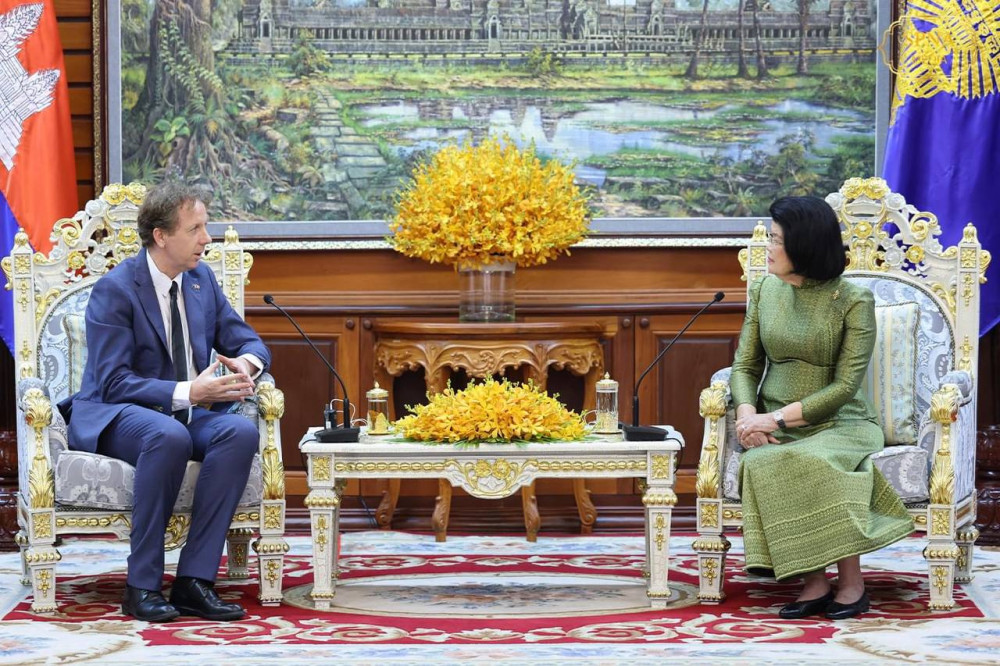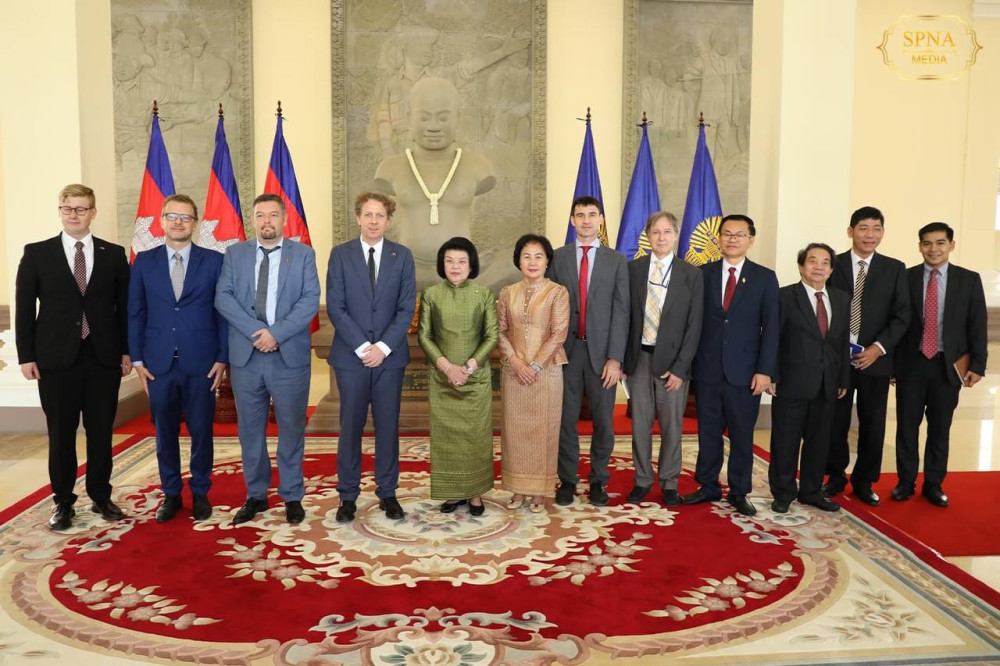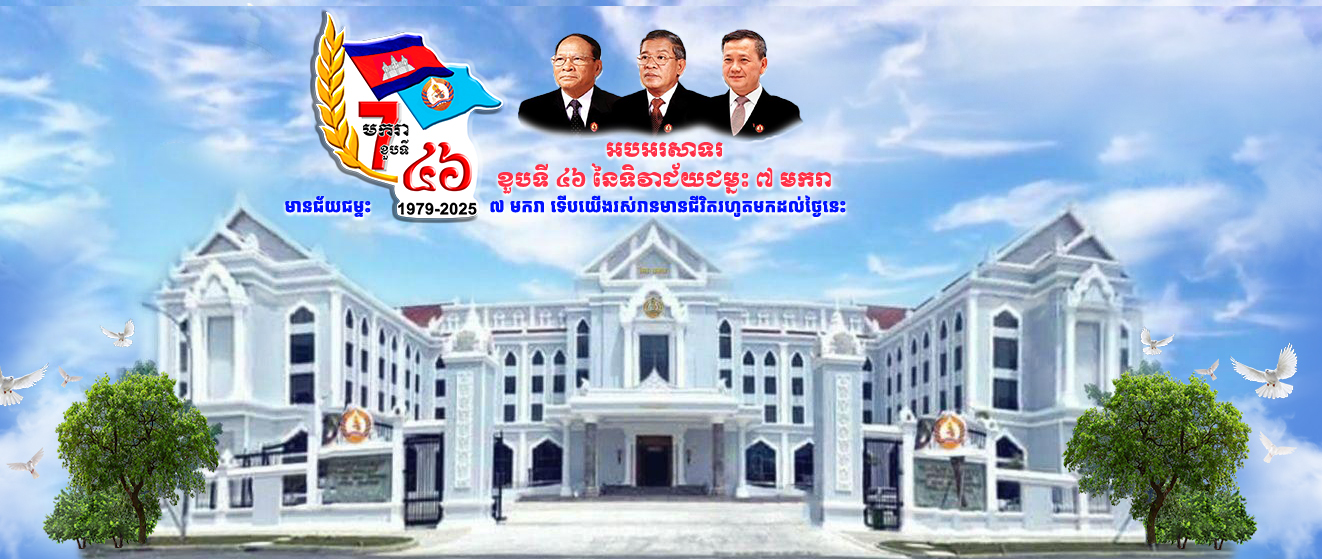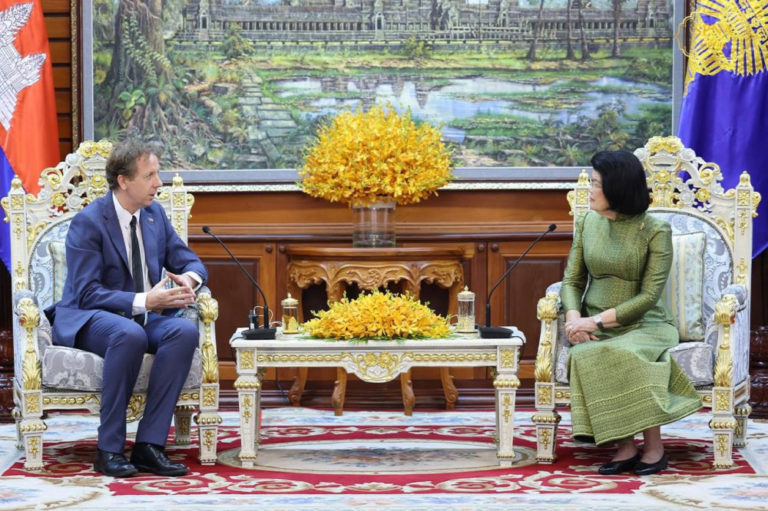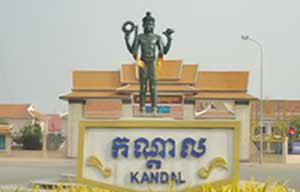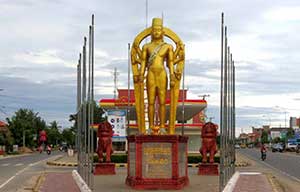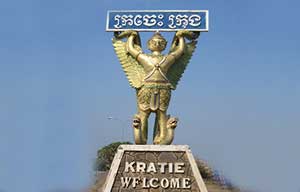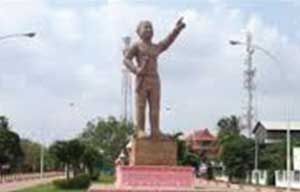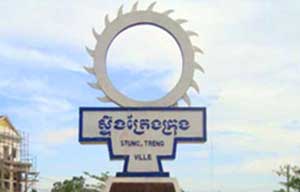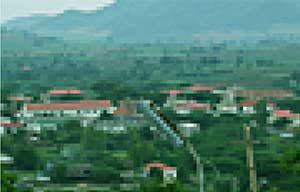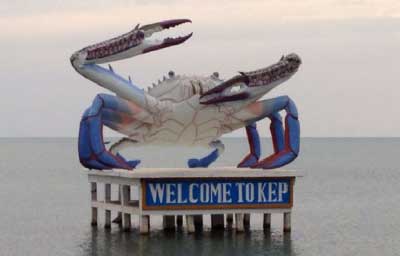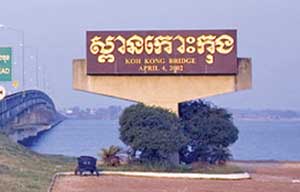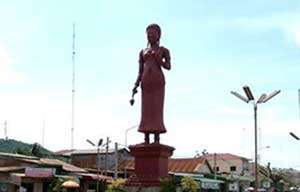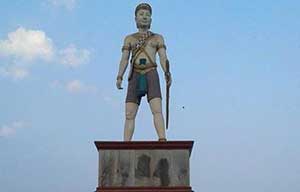The National Assembly (NA) of Cambodia will always be open for discussion and cooperation with the EU Delegation to Cambodia, as well as for meetings between specialised commissions of the European Parliament and the Cambodian NA to enhance cooperation, exchange experiences and enhance cooperation for mutual benefit.
The remarks were made by Samdech Moha Rathsapheathika Thipadei KHUON Sudary, President of the Cambodian NA, while receiving a courtesy call by H.E. Igor DRIESMANS, EU Ambassador to Cambodia, at the NA Palace here on May 15.
The NA president highlighted the role of Cambodia as an active member both within the ASEAN and in the Asia-Pacific framework, as well as a member of the Regional Comprehensive Economic Partnership (RCEP) Agreement. Thus, Cambodia can act as a bridge to connect and strengthen cooperation between the EU, ASEAN and the Asia-Pacific region.
Samdech KHUON Sudary spoke highly of the relations and cooperation between Cambodia and the EU since the 1990s, and thanked the EU for its technical and financial assistance to Cambodia so far, especially the support to the US$155-million Joint European Strategy for Development Cooperation with Cambodia (2021-2027), focusing on green development and green employment, education and skills development, as well as governance.
The Cambodian NA president took the opportunity to reaffirm Cambodia’s support for the Global Gateway project, which focuses on “green education and digital work” and will attract investment that helps Cambodia become a prosperous country and benefits Cambodian youth.
For his part, H.E. Igor DRIESMANS expressed his congratulations to Samdech KHUON Sudary for being elected as President of the Cambodian NA and for being the first Cambodian woman to hold such an important position.
In June, Europe will elect a new parliament, he said, hoping that the European Parliament and the Cambodian NA will have better and deeper cooperation.
Both sides also exchanged views on current global challenges such as conflicts, geopolitical competition, as well as public health challenges, climate change and epidemics, and acknowledged the importance of strengthening the rules-based multilateralism and promotion of international cooperation.
